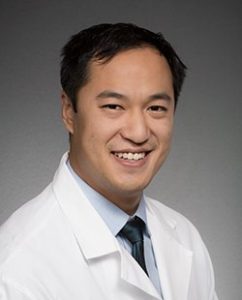Click on any member for more information!
Investigators

Jeff Ojemann is a neurosurgeon with a practice focusing on the surgical treatment of epilepsy in adults and children. He is Director of Epilepsy Surgery at the Harborview Medical Center and Seattle Children’s Hospital at the University of Washington. He received his MD in 1992 at Washington University in St. Louis, and remained there for residency in neurosurgery (1999) and fellowship in pediatric neurosurgery at St. Louis Children’s Hospital in 2000. He joined the faculty at the University of Washington in 2003 and holds the Richard G. Ellenbogen Chair in Pediatric Neurological Surgery. He has been funded by NIH or NSF continuously since then with present focus on electrical stimulation and current distribution in human and animal models of cortical surface stimulation. He has over 165 peer-reviewed publications, primarily in neuroimaging and human cortical physiology. He is the co-leader of the Cortical co-adaptation with bidirectional brain-computer interface testbed of the Center for Sensorimotor Neural Engineering (a NSF Engineering Research Center).
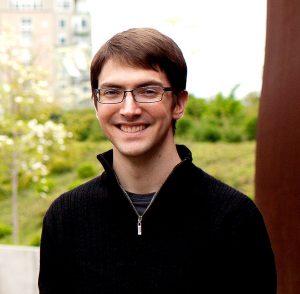
Jeffrey Herron earned his Bachelor’s of Applied Science in Electrical Engineering from the University of British Columbia in 2009. After three years working in the Microsoft Research Hardware Prototyping Lab, he returned to graduate school to pursue a PhD in Electrical Engineering at the University of Washington within the BioRobotics Lab. Following the completion of his PhD thesis in 2016, Jeff moved to Minnesota to work within the Medtronic Restorative Therapies Research and Core Technology team. There he spent three years developing new human-use implantable research tools for improving the treatment of neurological disorders through the application of closed-loop system integration. In 2019, Jeff returned to UW as a research professor in the Department of Neurological Surgery, and rejoined the BRL to continue his research into developing new research tools and systems to explore the applications of bi-directional neural interfaces to enable or improve the treatment of neurological diseases, disorders, and injuries. More at Jeff’s personal UW page
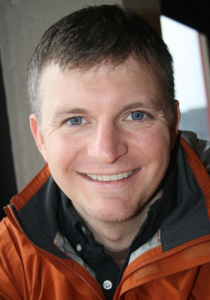
Kurt Weaver is an Assistant Professor in the Department of Radiology and holds faculty affiliations in the UW Graduate Program in Neuroscience, the UW Center for Sensorimotor Neural Engineering (CSNE) and an adjunct appointment in the UW Department of Psychology. He is a junior Investigator in the grid lab and a primary instructor in the UW School of Medicine where he is co-director of the Mind, Brain and Behavior block, the primary neuroanatomy course for UW undergraduate medical education. His research interests are primarily focused on the relationship between complex and integrative neural systems and higher-level cognitive and behavioral function. Current efforts combine both functional imaging (e.g. fMRI) modalities and invasive electrophysiology including Electrocorticography (ECoG) and Deep Brain Stimulation (DBS) to probe cognition as a function of interactions across widely distributed yet highly inter-connected networks. This work leverages the high fidelity of direct recordings from the human cortex and deep brain structures to interrogate relationships between brain organization, functional connectivity and computation neurophysiology.
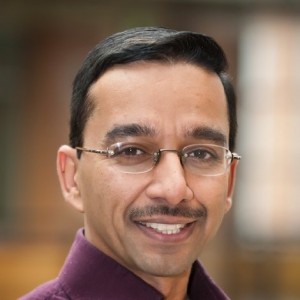
Rajesh P. N. Rao is the Director of the NSF Center for Sensorimotor Neural Engineering and a Professor of Computer Science and Engineering at the University of Washington. He is the recipient of a Fulbright Scholar award, an NSF CAREER award, an ONR Young Investigator Award, a Sloan Faculty Fellowship, and a Packard Fellowship for Science and Engineering. He is the author of Brain-Computer Interfacing (Cambridge University Press, 2013) and co-editor of Probabilistic Models of the Brain (MIT Press, 2002) and Bayesian Brain (MIT Press, 2007). His research spans the areas of computational neuroscience, robotics, and brain-computer interfacing.
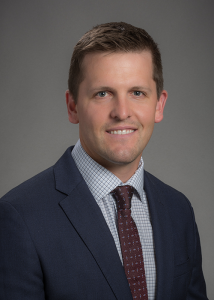
Dr. Grannan is a neurosurgeon at the University of Washington Medical Center and at the Epilepsy Center at Harborview Medical Center. He received dual Bachelor of Science degrees in Physics and Biology from the Massachusetts Institute of Technology (MIT). He received his Doctor of Medicine degree from Harvard Medical School and completed neurosurgery residency training at the Massachusetts General Hospital (MGH) and Harvard Medical School. During residency, he was a recipient of the Neurosurgery Research and Education Foundation and NIH T32 research grants, which supported his postdoctoral research fellowship in the Ziv Williams Lab at MGH. He moved to Seattle following residency training to complete a fellowship in Epilepsy, Movement Disorders, and Brain Tumor mapping at the University of Washington. He then stayed on as Assistant Professor in the University of Washington Department of Neurological Surgery.
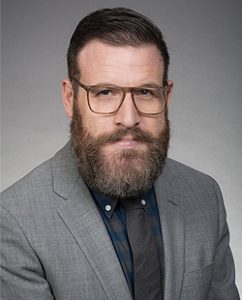
Dr. Jason S. Hauptman is an associate professor of neurological surgery and a board-certified pediatric neurosurgeon. He is a staff neurosurgeon at both Seattle Childrens Hospital and Harborview Medical Center. He dedicates a significant portion of his clinical practice to the surgical management of epilepsy, both in children (Seattle Children’s Hospital) and adults (Harborview Medical Center). For the surgical management of epilepsy, he focuses on the utilization of stereoelectroencephalography (sEEG) including using the ROSA Robotic System, stereotactic laser thermoablation (LITT), neuromodulation such as VNS and RNS, and open surgery such as lobectomy, hemispherectomy, and corpus callostomy. Dr. Hauptman also has a clinical interest in the surgery of tumors involving eloquent cortex, using techniques such as fMRI/rsfMRI planning and awake functional mapping. His research focuses on translation of novel therapeutics to the bedside, including targeted molecular therapies for epilepsy, as well as patient-oriented approaches to improve outcomes in epilepsy and pediatric neurosurgery.
Current Members
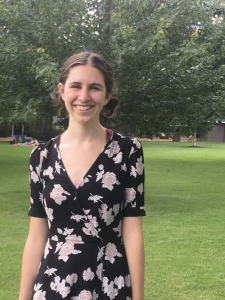
Lila Levinson is a Neuroscience PhD candidate working in the UW GRIDlab with Dr. Jeff Ojemann and Dr. Steve Perlmutter. Her research interests center around using direct electrical stimulation of the human cortex to change the state of the brain. She hopes to set a groundwork for electrical stimulation to harness and direct the underlying natural flexibility of the brain, promoting recovery after spinal cord injury and stroke. In addition to research, she ispassionate about science education and outreach, and about making academia, and STEM spaces in particular, safe and welcoming for anyone and everyone who wants to do science.
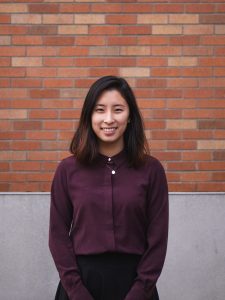
Samantha Sun is a Ph.D. candidate in the Bioengineering department, and her research focus includes: decoding electrocorticography (ECoG) signals to detect behavioral biomarkers, and predicting neural response to direct electrical stimulation. Her work aims to create a closed-loop neural stimulation method to drive neural behavior towards a desired state or outcome.
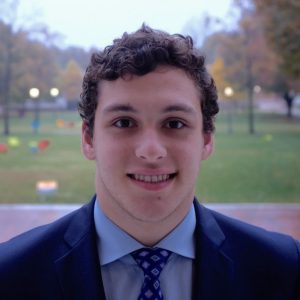
Raphael is a Ph.D. candidate in the Bioengineering department, interested in the research and development of Brain-computer Interfaces and their possible applications in medicine to help people with different neurological disorders. He obtained his Bachelors of Science in Biomedical Engineering and Master’s of Science and Engineering in Biomedical Engineering at Johns Hopkins University.
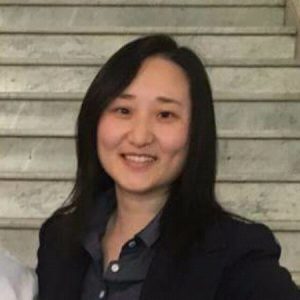
Hanbin is a Ph.D. candidate in the Electrical and Computer Engineering Department. In 2018, she received her Bachelor’s of Science in Bioengineering and Biomedical Engineering from Case Western Reserve University.
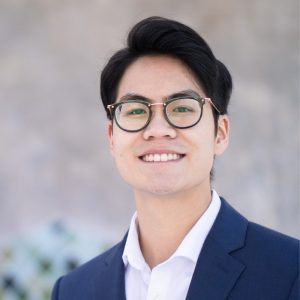
Timmy is a Master of Science student in the department of Bioengineering at the University of Washington. His research in the Neural Systems Lab and GRIDLab centers on data-driven approaches in neural engineering for understanding and treating chronic pain. He is a fervent advocate for research inclusion and has led BioExplore at UW, a student organization focused on promoting interdisciplinary research opportunities for improving human health.
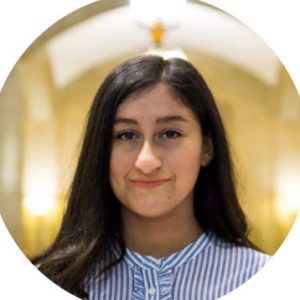
Haleh is pursuing a MS in Electrical and Computer Engineering with a focus in Machine Learning, Signal Processing and Neural Engineering. In 2018, she received her Bachelor of Science in Mechanical Engineering from the University of Washington. Currently, Haleh also works for Boeing as a 777X Flight Controls Engineer.
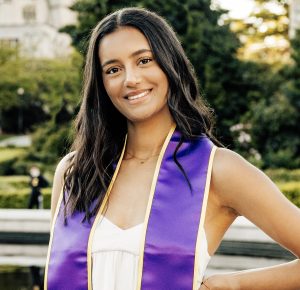
Sophia is a post-bacc at the GRIDlab, having graduated with a Bachelor of Science in Psychology from the University of Washington in 2022. In her current position, she supports clinical research with epilepsy patients undergoing intracortical neural recording (ECOG, sEEG). Within the near future, Sophia hopes to attend graduate school and earn a doctorate in Clinical Neuropsychology!
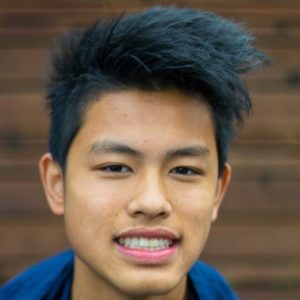
Iman is a senior and soon to be a master’s student in the Allen School of Computer Science. His research primarily involves using virtual reality and artificial intelligence to build novel neuroscience experiments and brain computer interfaces.
Postdocs and Residents
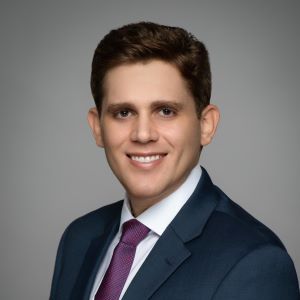
Juan “Pancho” Ruiz Rodríguez was born and raised in Arecibo, Puerto Rico. He majored in physics at Princeton University and completed his undergraduate thesis work in quantum field theory under the mentorship of Dr. Alexander Polyakov and Dr. Christopher Tully. Juan later attended the University of Puerto Rico to study medicine. During this time, he witnessed the devastation of Hurricane Maria and joined in the island’s relief efforts. His neurosurgical research interests include using advanced computational tools to enhance closed-loop neuromodulation. Juan is also an Eagle Scout and an avid outdoorsman who enjoys spending time outdoors with friends, family, and his dog. He is fluent in both English and Spanish.
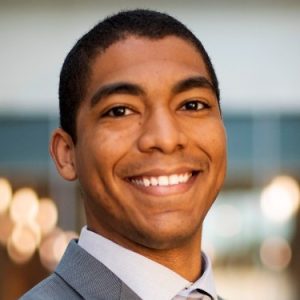
Adriel, a Panamanian-American from Houston, TX, graduated magna cum laude from Brown University with a BSc and BA in Neuroscience and Science, Society, and Technology Studies. He earned his MD through the combined Baccalaureate-MD Program in Liberal Medical Education at The Warren Alpert Medical School of Brown University. At Brown, he conducted research on a novel pharmaceutical treatment for neonatal cerebrovascular brain injury, psychiatric neurosurgery, including neuroablation and Deep Brain Stimulation for Obsessive-Compulsive Disorder, and spinal neurocircuitry involved in pain signaling. Under the mentorship of Dr. Ziya Gokaslan, Adriel started the first National Student Neurological and Neurosurgical Research Conference for medical students, which has grown into an international conference to support students interested in clinical neurosciences. As a medical student, he worked at Clínica Esperanza (Hope Clinic), a free, student-run clinic for uninsured, mostly Spanish-speaking, members of the Providence community, and helped start a neurology specialty clinic that has now served nearly 60 patients with a variety of neurologic conditions including epilepsy, Parkinson’s, and headache disorders. As a classically-trained violinist with over 20 years of experience, he has performed at Carnegie Hall, the Kennedy Center, concert halls in Italy and Germany, and first found his way to medicine performing for patients in ICUs and hospital bedrooms. In his spare time, he loves to listen to and make music, eat great food, exercise, and read webcomics.
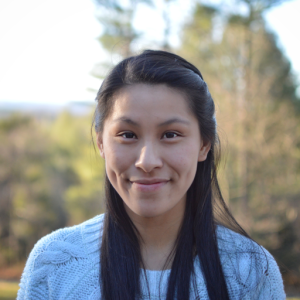
Monica is a Shanahan Postdoctoral Fellow at the Allen Institute for Brain Science and the University of Washington, using computational methods to examine how neural population activity changes over the course of learning. Her primary research interests are in studying memory and reward pathways with the long-term goal of understanding the neural mechanisms of neuropsychiatric disorders.
Recent Alumni

Courtnie Paschall completed her Ph.D. in Neural Engineering at the University of Washington in 2022. Her research seeks to better understand how the brain understands touch, integrates stimulation, and constructs a sense embodiment. Prior to joining the UW Medical Scientist Training Program (MSTP), Courtnie studied physics, neuroscience, and electrical engineering, served briefly as an officer in the US Navy, and traveled a fair amount around this beautiful globe.
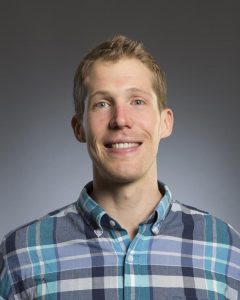
David Caldwell completed his MD and PhD at the University of Washington through the MSTP program in 2021. His research focuses broadly on neural connectivity and processing. Specifically, his work aims to enhance neural connectivity through electrical cortical stimulation and characterizing the cortical response to stimulation in human patients implanted with electrocorticographic grids in preparation for epilepsy surgery. David received bachelor’s and master’s degrees in biomedical engineering from the University of Michigan.
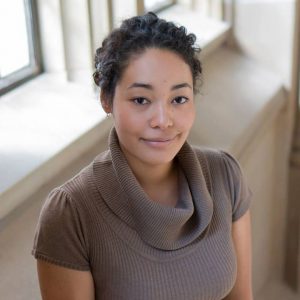
Nile Wilson completed her Ph.D. in Bioengineering at the University of Washington in 2019. While at UW, she worked with epilepsy patients, who have brain surface electrodes temporarily implanted, to better understand and improve how brain-computer interfaces adapt to changes in neural signals associated with learning a task. Specifically, her research aims to use error signatures already in the patients’ brains to automatically adjust the brain-computer interface decoding. Nile received a bachelor’s degree in Biomedical Engineering from the University of Virginia.
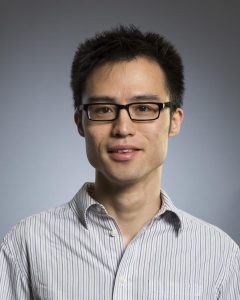
James Wu completed his Ph.D. in Bioengineering and Biomedical Engineering at the University of Washington in 2019. His research aims to reveal the complex way by which the human brain controls hand and arm movement, in hopes of one day being able to engineer neuroprosthetic implants that can reverse upper body paralysis caused by trauma or disease. While at UW, he examined human brain (electrocorticographic) and muscle (electromyographic) signals using tools from machine learning, signal processing, and control theory. James has a bachelor’s degree in bioengineering from the University of California San Diego. In addition to being awarded a WRF Innovation Graduate Fellowship, he was involved in student leadership at the Center for Sensorimotor Neural Engineering, and has coauthored 15 publications in the field of neuroengineering, neuroimaging, and optical engineering.
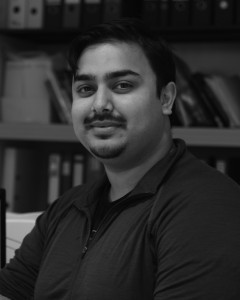
Devapratim Sarma received his Ph.D. in Bioengineering with a focus on Neural Engineering from the University of Washington in 2017. While at UW, his research focused on optimizing electrocorticographic brain-computer interfaces for cognitive and motor rehabilitation. He received the BS degrees in Bioengineering and Animal Physiology & Neuroscience from the University of California, San Diego in 2009. He was also a research associate at the Swartz Center for Computational Neuroscience (2008-2011).



